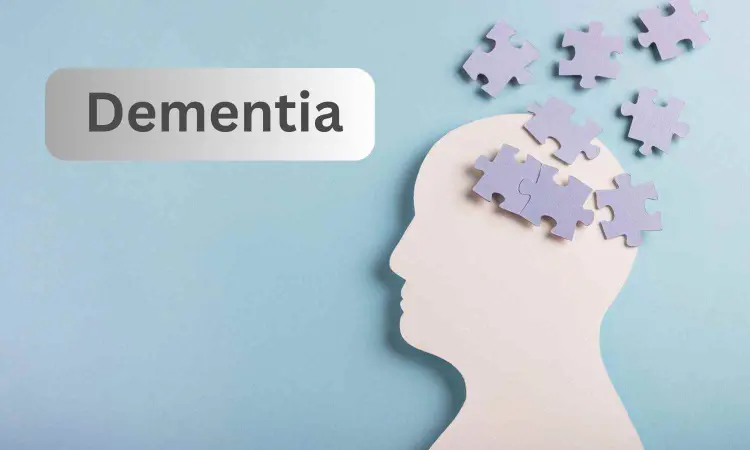- Home
- Medical news & Guidelines
- Anesthesiology
- Cardiology and CTVS
- Critical Care
- Dentistry
- Dermatology
- Diabetes and Endocrinology
- ENT
- Gastroenterology
- Medicine
- Nephrology
- Neurology
- Obstretics-Gynaecology
- Oncology
- Ophthalmology
- Orthopaedics
- Pediatrics-Neonatology
- Psychiatry
- Pulmonology
- Radiology
- Surgery
- Urology
- Laboratory Medicine
- Diet
- Nursing
- Paramedical
- Physiotherapy
- Health news
- Fact Check
- Bone Health Fact Check
- Brain Health Fact Check
- Cancer Related Fact Check
- Child Care Fact Check
- Dental and oral health fact check
- Diabetes and metabolic health fact check
- Diet and Nutrition Fact Check
- Eye and ENT Care Fact Check
- Fitness fact check
- Gut health fact check
- Heart health fact check
- Kidney health fact check
- Medical education fact check
- Men's health fact check
- Respiratory fact check
- Skin and hair care fact check
- Vaccine and Immunization fact check
- Women's health fact check
- AYUSH
- State News
- Andaman and Nicobar Islands
- Andhra Pradesh
- Arunachal Pradesh
- Assam
- Bihar
- Chandigarh
- Chattisgarh
- Dadra and Nagar Haveli
- Daman and Diu
- Delhi
- Goa
- Gujarat
- Haryana
- Himachal Pradesh
- Jammu & Kashmir
- Jharkhand
- Karnataka
- Kerala
- Ladakh
- Lakshadweep
- Madhya Pradesh
- Maharashtra
- Manipur
- Meghalaya
- Mizoram
- Nagaland
- Odisha
- Puducherry
- Punjab
- Rajasthan
- Sikkim
- Tamil Nadu
- Telangana
- Tripura
- Uttar Pradesh
- Uttrakhand
- West Bengal
- Medical Education
- Industry
Ditch TV and read a book: UniSA research delivers best moves to reduce dementia risk

It's that time of the year when most of us get the chance to sit back and enjoy some well-deserved down time. But whether you reach for the TV controller, or a favourite book, your choice could have implications for your long-term brain health, say researchers at the University of South Australia.
Assessing the 24-hour activity patterns of 397 older adults (aged 60+), researchers found that the context or type of activity that you engage in, matters when it comes to brain health. And specifically, that some sedentary (or sitting) behaviours are better for cognitive function than others.
When looking at different sedentary behaviours, they found that social or mentally stimulating activities such as reading, listening to music, praying, crafting, playing a musical instrument, or chatting with others are beneficial for memory and thinking abilities. Yet watching TV or playing video games are detrimental.
Researchers believe that there is likely a hierarchy of how sedentary behaviours relate to cognitive function, in that some have positive effects while others have negative effects.
It’s a valuable insight that could help reduce risks of cognitive impairment, particularly when at least 45% of dementia cases could be prevented through modifiable lifestyle factors.
In Australia, about 411,100 people (or one in every 1000 people) are living with dementia. Nearly two-thirds are women. Globally, the World Health Organization estimates that more than 55 million people have dementia with nearly 10 million new cases each year.
UniSA researcher Dr Maddison Mellow says that not all sedentary behaviours are equal when it comes to memory and thinking ability.
“In this research, we found that the context of an activity alters how it relates to cognitive function, with different activities providing varying levels of cognitive stimulation and social engagement,” Dr Mellow says.
“We already know that physical activity is a strong protector against dementia risk, and this should certainly be prioritised if you are trying to improve your brain health. But until now, we hadn’t directly explored whether we can benefit our brain health by swapping one sedentary behaviour for another.
“We found that sedentary behaviours which promote mental stimulation or social engagement – such as reading or talking with friends – are beneficial for cognitive function, whereas others like watching TV or gaming have a negative effect. So, the type of activity is important.
“And, while the ‘move more, sit less’ message certainly holds true for cardiometabolic and brain health, our research shows that a more nuanced approach is needed when it comes to thinking about the link between sedentary behaviours and cognitive function.”
Now, as the Christmas holidays roll around, what advice do researchers have for those who really want to indulge in a myriad of Christmas movies or a marathon of Modern Family?
“To achieve the best brain health and physical health benefits, you should prioritise movement that’s enjoyable and gets the heart rate up, as this has benefits for all aspects of health,” Dr Mellow says.
“But even small five-minute time swaps can have benefits. So, if you’re dead set on having a Christmas movie marathon, try to break up that time with some physical activity or a more cognitively engaged seated activity, like reading, at some point. That way you can slowly build up healthier habits.”
References: Maddison L Mellow, PhD, Dorothea Dumuid, PhD, Alexandra Wade, PhD, Timothy Olds, PhD, Ty Stanford, PhD, Hannah Keage, PhD, Montana Hunter, PhD, Nicholas Ware, BSc, BPsyc (Hons), Felicity M Simpson, BPsyc (Hons), Frini Karayanidis, PhD ... Show more
The Journals of Gerontology: Series A, Volume 79, Issue 11, November 2024, glae233, https://doi.org/10.1093/gerona/glae233
Published: 19 September 2024
Dr Kamal Kant Kohli-MBBS, DTCD- a chest specialist with more than 30 years of practice and a flair for writing clinical articles, Dr Kamal Kant Kohli joined Medical Dialogues as a Chief Editor of Medical News. Besides writing articles, as an editor, he proofreads and verifies all the medical content published on Medical Dialogues including those coming from journals, studies,medical conferences,guidelines etc. Email: drkohli@medicaldialogues.in. Contact no. 011-43720751


